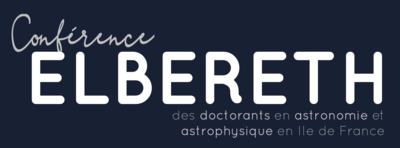Orateur
Description
This conference presentation delves into recent advancements in understanding the formation and evolution of Mars' moons, Phobos and Deimos. Building upon Bagheri et al.'s 2021 hypothesis suggesting the dislocation of a larger progenitor as the origin of these moons, the study by Hyodo et al. in 2022 challenges this idea. Hyodo et al. argue that under reasonable assumptions about the post-dislocation orbits of Phobos and Deimos, a collision between the two moons becomes almost inevitable within 10,000 years, leading to their mutual annihilation. These findings are based on n-body simulations, accounting for Mars' J2 and J4 gravitational perturbations and mutual perturbations between the moons.
In this presentation, we extend these simulations by incorporating additional factors such as solar perturbations, Mars' axial precession, and its deformation along three axes. We also change some of the hypothesis taken by Hyodo et al concerning the initial distribution of Phobos and Deimos after the dislocation. Our analysis reveals that including these additional influences does not alter the ultimate fate of Phobos and Deimos. The moons still converge towards collision within comparable timescale, supporting Hyodo et al.'s conclusions : the formation of Mars’ moons from the dislocation of a progenitor is very unlikely.
Day constraints
I will not be able to make a presentation on Friday afternoon
| Astrophysics Field | Planetology (including small bodies and exoplanets) |
|---|
